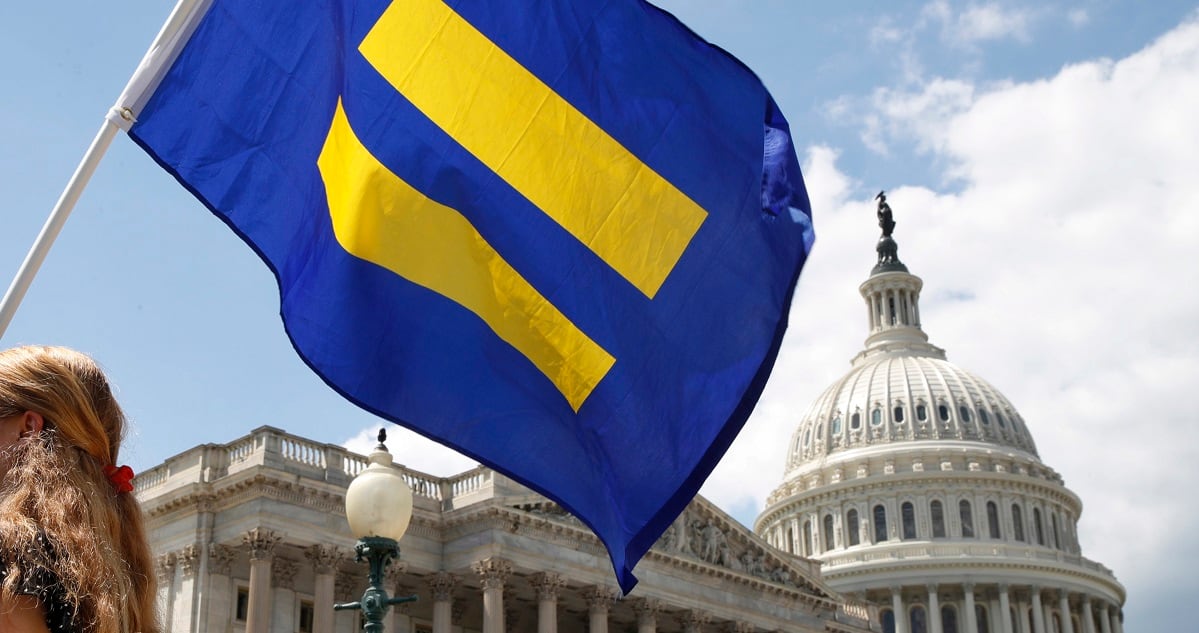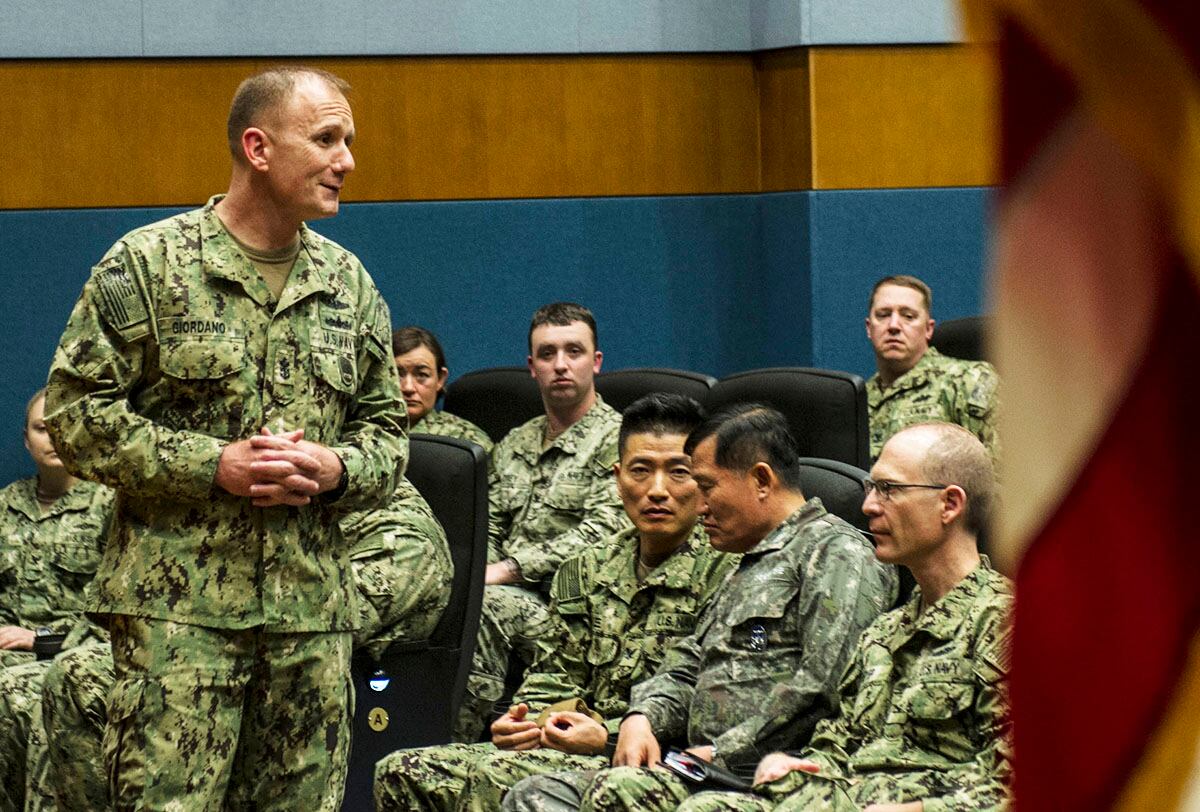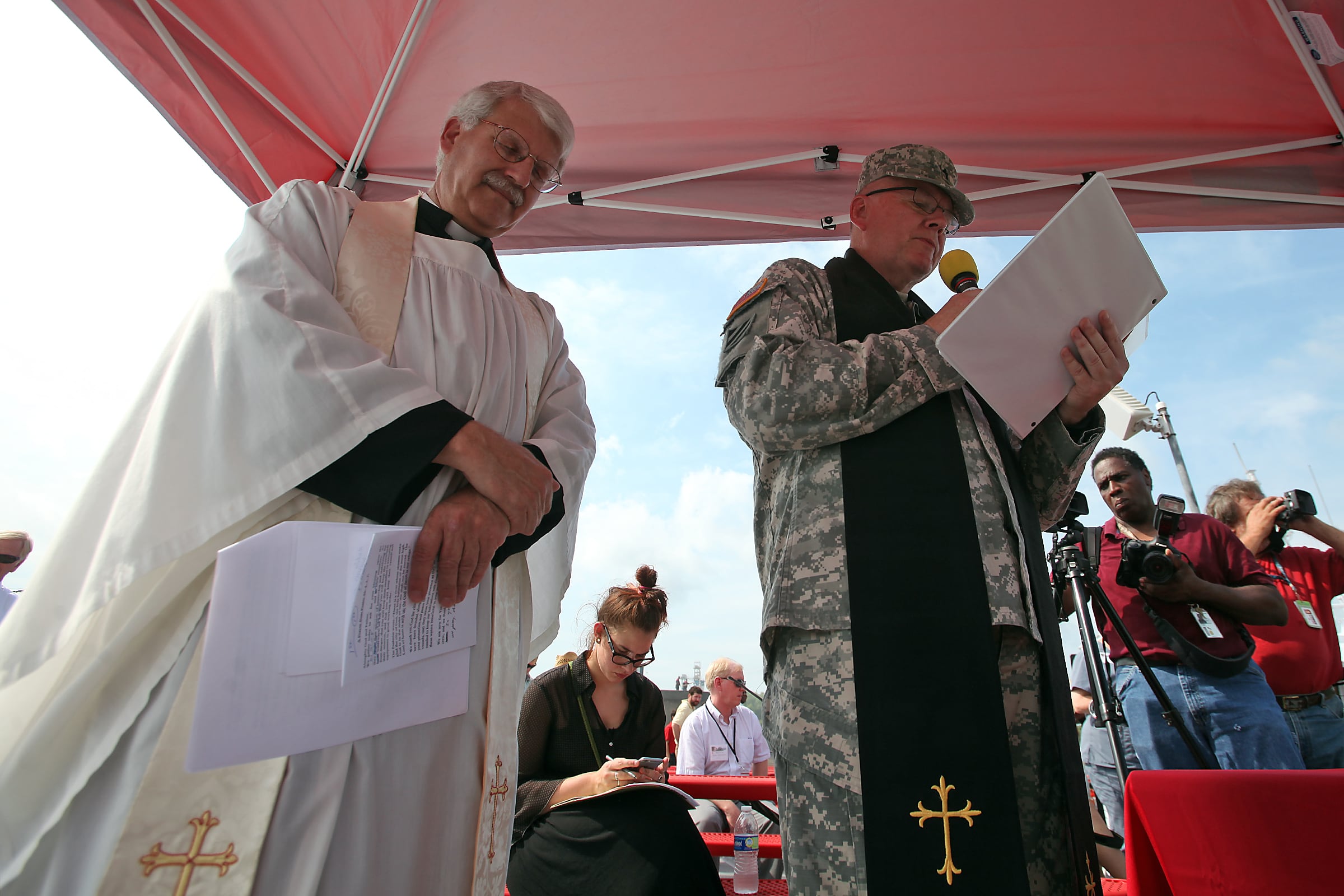The Department of Defense continues to implement a plan to bar transgender service members from serving in their preferred gender identity or joining if they have experienced gender dysphoria.
The Pentagon’s ban fails transgender Americans, our military and our country by denying access to qualified individuals willing to defend democracy and serve the United States.
I’ve talked to some of these transgender sailors and have come to believe that it’s time for members of the military to support them.

Proponents of the ban argue that it does not disqualify trans individuals from service. Rather, trans service members are required to serve in accordance with their biological sex and cannot have a diagnosed history of gender dysphoria.
Some — like retired Army Lt. Gen. Thomas Spoehr of the Heritage Foundation — have argued that the policy is not a ban because its language focuses on transitioning and gender dysphoria specifically. To Spoehr, this allows transgender service members to serve if they conform to the standards of their biologically assigned sex.
However, the Pentagon policy is merely a return to discrimination with a veneer of inclusion. Basing the continued service of trans service members on their willingness to conform to a gender they do not identify with is tantamount to the forced closeting of LGBT+ service members under the defunct “Don’t Ask, Don’t Tell” policy.
Waivers are available for those with a history of gender dysphoria, but transitioning remains proscribed, which contradicts conventional medical wisdom. Physicians view transitioning as an appropriate treatment for gender dysphoria. The directive is the functional equivalent of a blanket ban since it forces trans individuals to choose between love of country and their own well-being.
During the military’s review period, some officials highlighted concerns about the effects of trans integration on unit cohesion, readiness, and lethality.
But these concerns have been undermined repeatedly by senior enlisted and commissioned military leaders.
Navy Chief Petty Officer Melody Stachour said that she has had positive experiences with her leadership and colleagues, which is reflective of the high degree of support for transgender members in today’s military.
Retired Senior Chief Petty Officer Kristin Beck also pushed back on these arguments, adding that if anything inclusion softens biases through exposure. She took special exception to the lethality argument. A former SEAL in the Naval Special Warfare Development Group, Senior Chief Beck asked, “If I’m not lethal, then what is?”

Integration of transgender troops may present limited administrative difficulties, as all changes do. However, just as the military now recognizes it is wrong to deny women the opportunity to serve despite the required changes, it is wrong to prioritize convenience over the interests of transgender Americans.
This is especially true since preventing enlistment won’t prevent the military from paying for treatment. Let’s say that a sailor is diagnosed with gender dysphoria while in the Navy. The service member would have access to transition-related medical care while being processed out of the military at the same time.
Inclusion might incur an additional cost, but access to the talent and expertise of transgender service members is worth that accommodation.
Nor should the charge of “social experimentation” hold the weight it so often does. Any action taken within the military reverberates through American society at large, as occurred when President Harry S. Truman integrated the military in 1948.
If you say that Truman’s correct decision to integrate was a social experiment, so too would have been a decision to not integrate the armed forces in the midst of vast social changes.
In our republic, the military and society influence each other constantly, which prevents neutrality on social issues in the armed forces. A concerted effort to expand inclusion to previously disenfranchised groups is not a nefarious form of social experimentation; but depriving the military of talented people because of stereotypes and biases would be.
Spoehr and others also support the ban because the military is an organization based on standards. However, rather than assess qualification on a case-by-case basis, the directive proscribes anyone whose gender identity differs from their biological sex or who experiences gender dysphoria from military service.
“There is a wide arc of gender dysphoria, and it varies person to person," explained Senior Chief Beck. "A headache and a migraine can have the same cause, but there’s an important difference in severity.”

The policy makes service impossible for those who could perform their duties with appropriate care or after transitioning. This is not enforcing a standard. This is exclusion masked by a facade of policy.
At its core, the ban is an issue of leadership. It has created a civil rights issue not very different from the causes that have benefited women and people of color in the past. Many of the leadership principles that form the core of our service are in stark contrast to this ban and the perspective it represents.
We are instructed to set the example, yet this ban is the opposite of the example our organization should set. We ought to promote the ideals of America and an esprit de corps rooted in a shared mission, purpose, and set of standards.
We are instructed to keep our people informed, but years of planning and education have been squandered by the reinstatement of this ban. We must train our teams to understand the reality of a warfare environment that will always include transgender individuals.
We are instructed to know our people and look out for their welfare, but this policy tells us to do the opposite. Our organization now asks our people to live a lie for our sake without regard to their well-being.
We are asked to know ourselves and seek self-improvement before extending this effort to the institution we serve. We are capable of doing better.
RELATED

The nature of the military places some limits on what actions we can take. Chief Stachour made it clear that so long as the policy is on the books, it remains the obligation of service members to follow it.
Such is the nature of joining the military; sometimes we must follow policies we disagree with because of our duty to the Constitution and our mission. However, this does not preclude strong action in favor of promoting change.
Voting with this issue in mind and contacting members of Congress are both vital ways to correct our course. This is not a partisan move or a call based on the promotion of any ideology. All elected officials rely on the views of their constituents to inform policy imperatives and to maintain their office. By making this issue salient in the minds of policymakers, change can be promoted through legislation and political support.
But deference to elected officials is not enough. In order for change to happen, we need to make our voices heard in climate surveys, through the use of inclusive language, and through concerted efforts to appeal to senior leadership to enact necessary changes.
The military might be a hierarchy, but that does not prevent service members from highlighting bad policies and defending transgender personnel from discrimination.
It is our duty as members of the military to look out for our peers. By saying nothing and doing nothing to change this policy, we are failing in that mission.
As one sailor told me, “a lot of the people that I know who say things like ‘support our troops’ [and support the ban] have never served themselves. I think that even one person making a simple statement about supporting all troops would go a long way and could start the dialogue that may end up changing some people’s minds about us.”
Our military is an institution with enormous responsibility, but it has always maintained a can-do attitude. We can and should make this integration work, not simply for the sake of trans Americans, but for the sake of our whole country.
The trans community makes our nation and military stronger, more diverse, and more resilient. As Chief Stachour observed, “The policy won’t last forever. The ban is not the end of transgender people serving in the military. It is a pause.”
I believe it is incumbent on members of the military to keep that pause as short as possible by making our voices heard in the Capitol and the Pentagon.
To the many transgender veterans, service members, and eager patriots who will one day serve, thank you for all that you do. We owe you a debt of gratitude.
Midshipman 2nd Class Benjamin Chiacchia is a junior at Brown University, where he studies political science, history and the Middle East. His views do not necessarily reflect those of Navy Times or its staffers.





